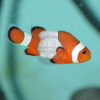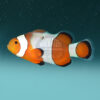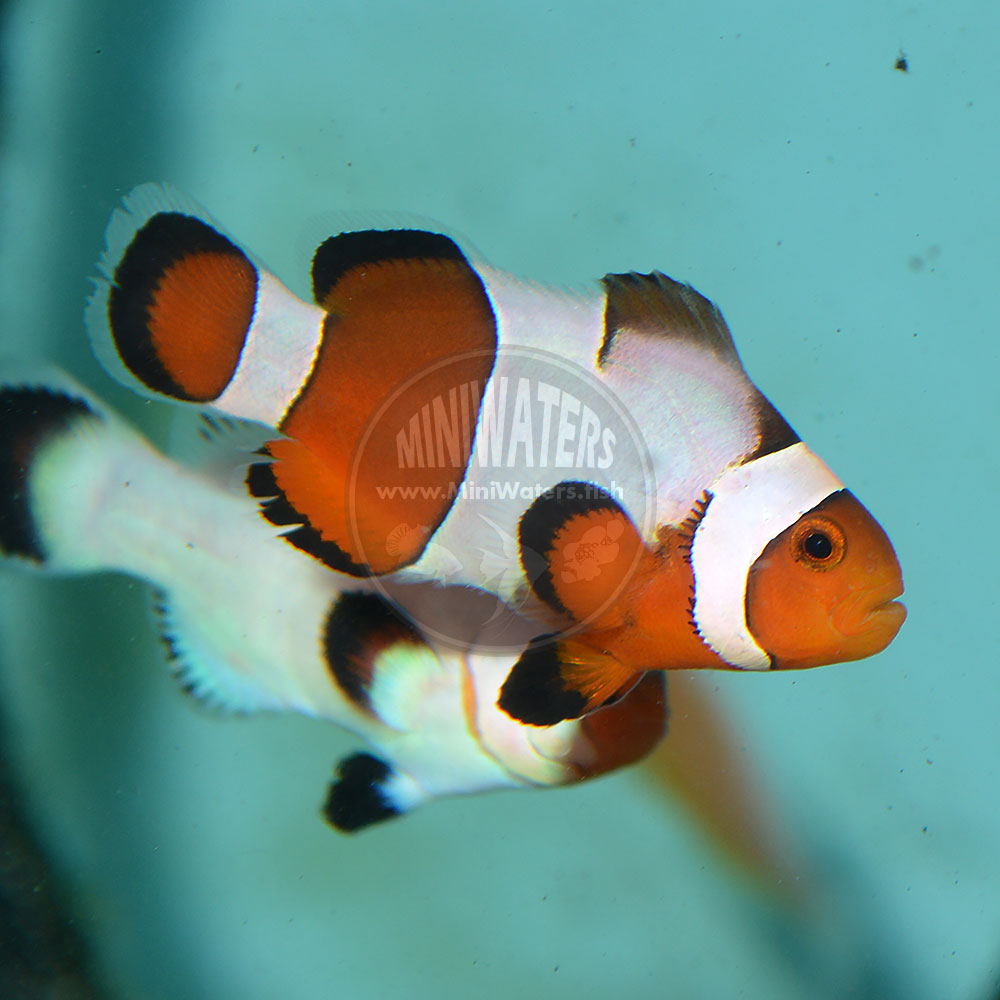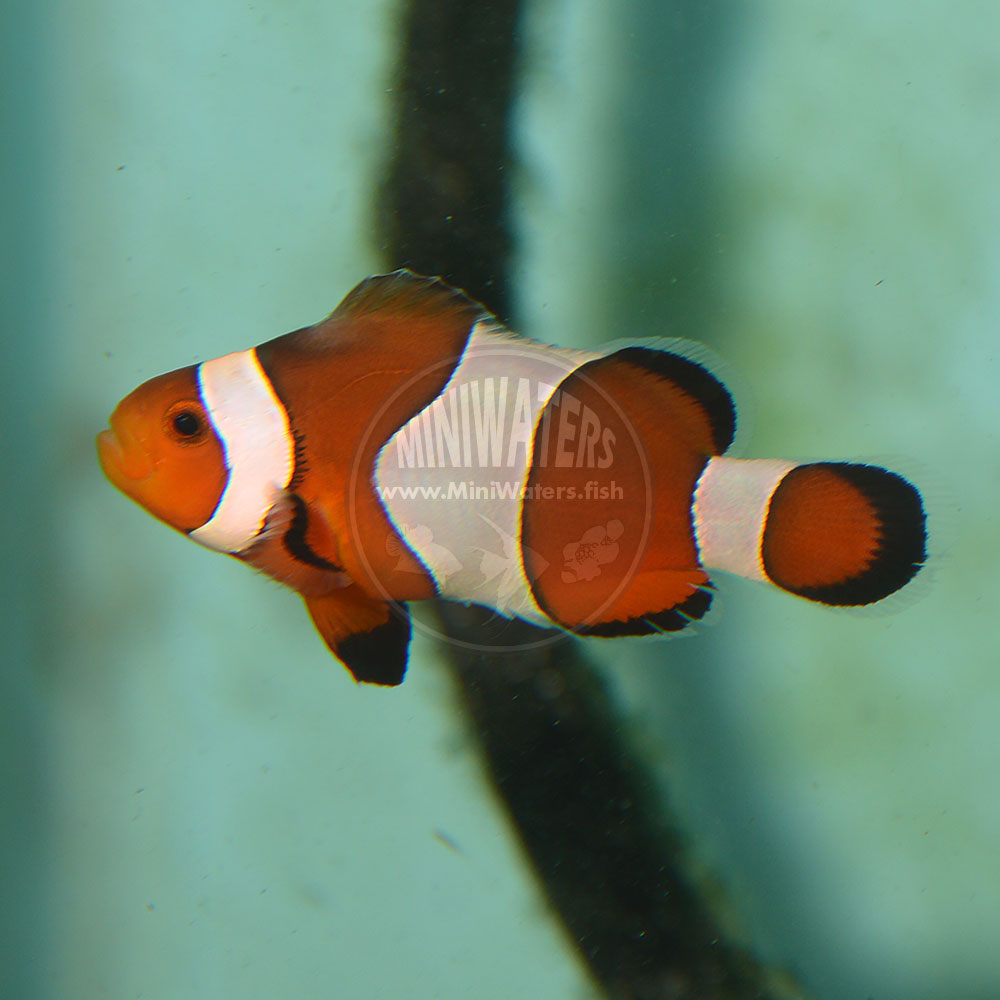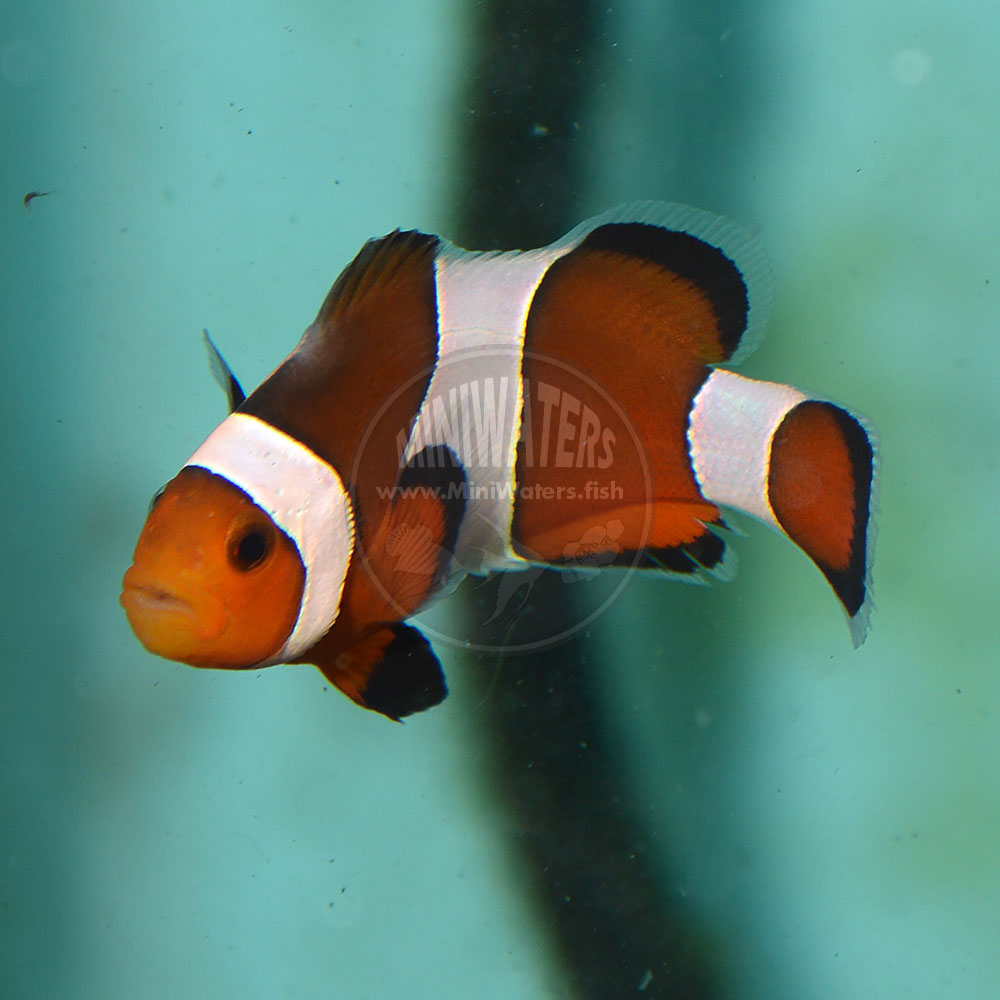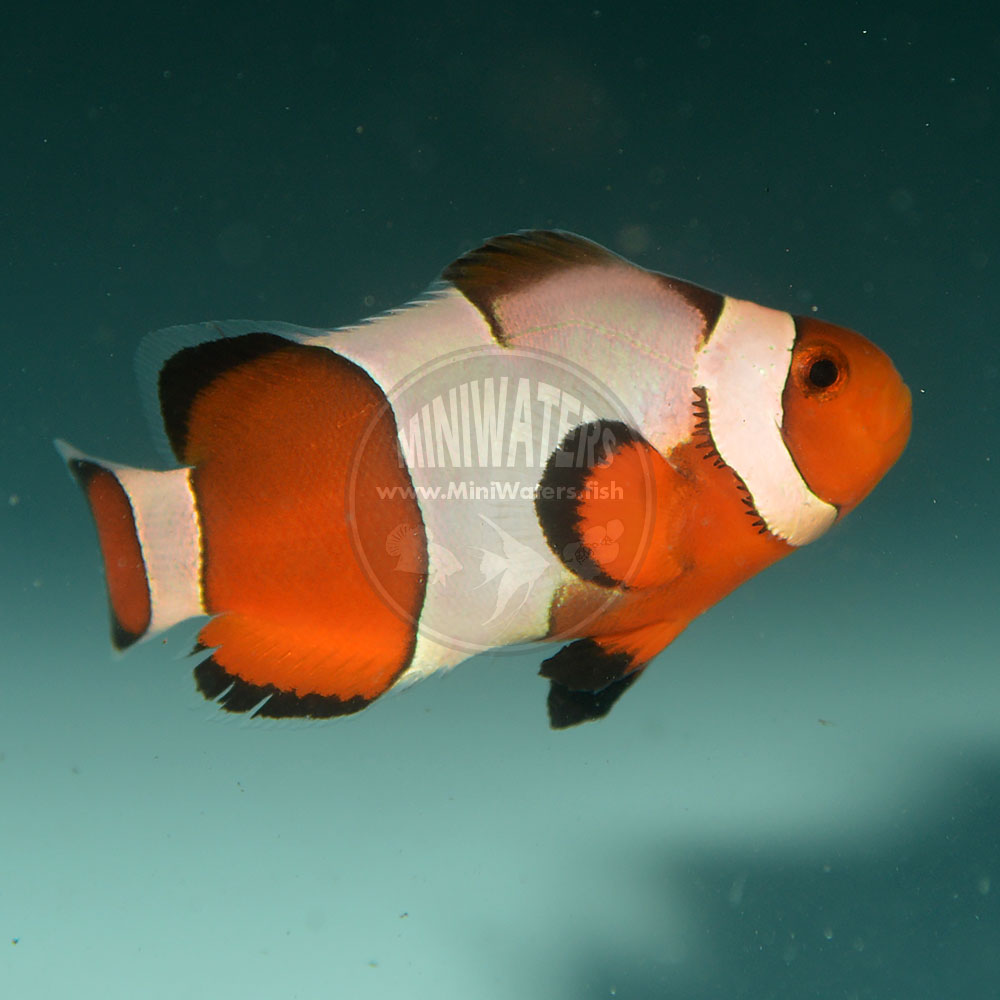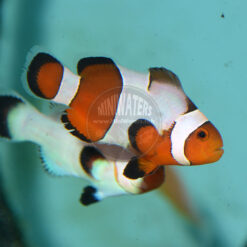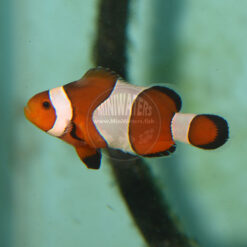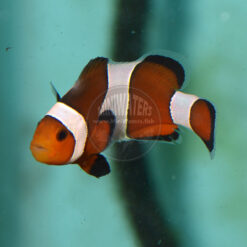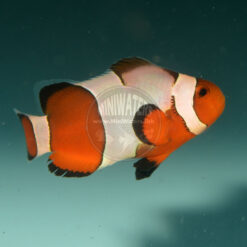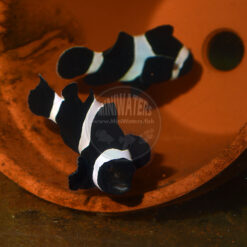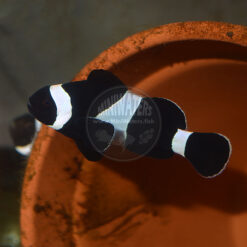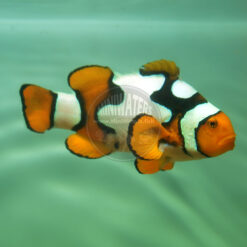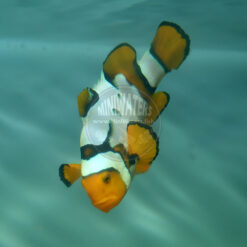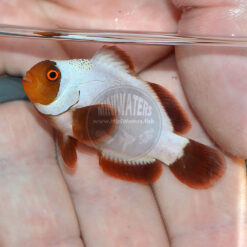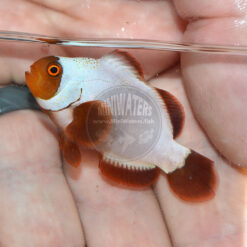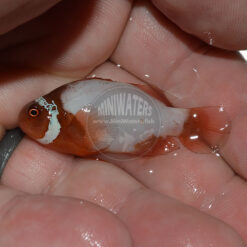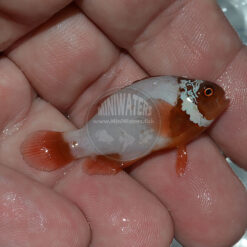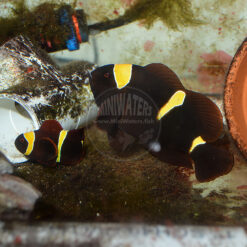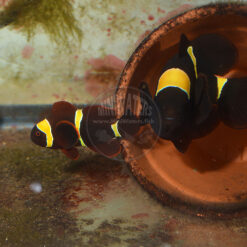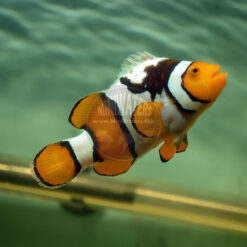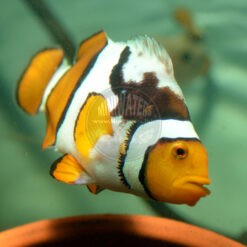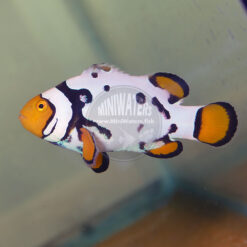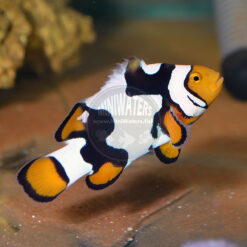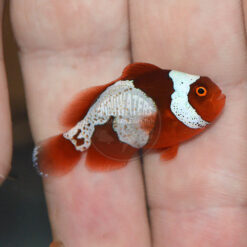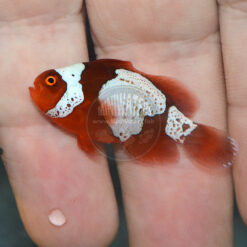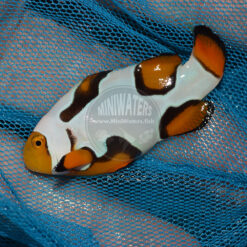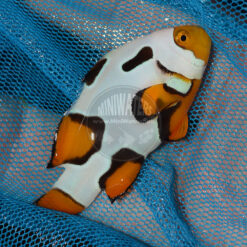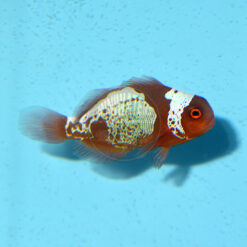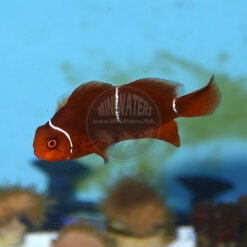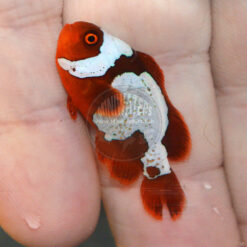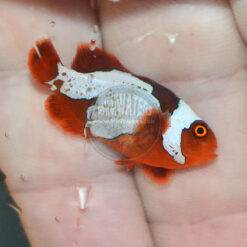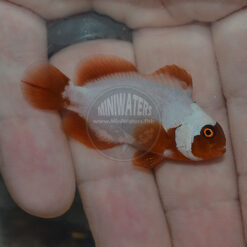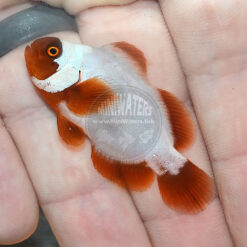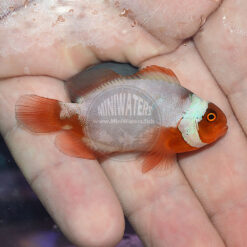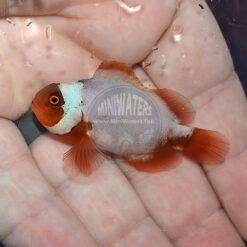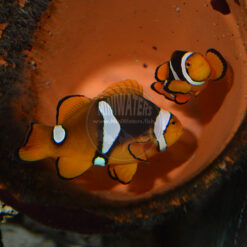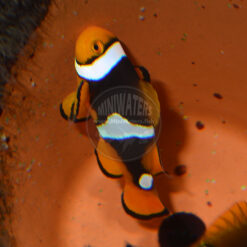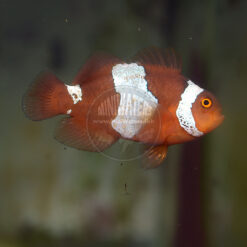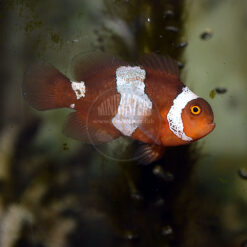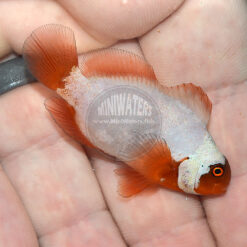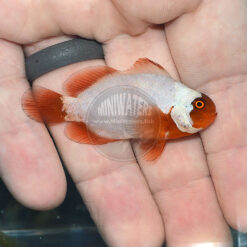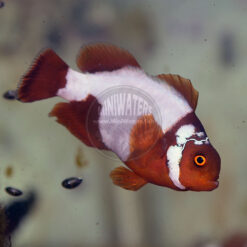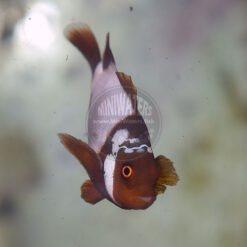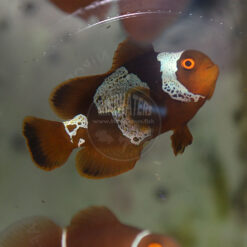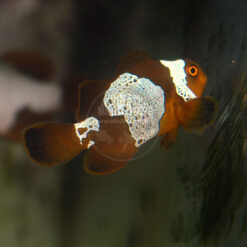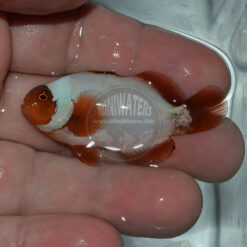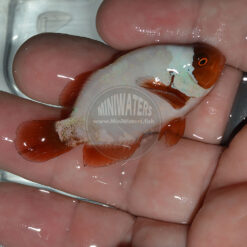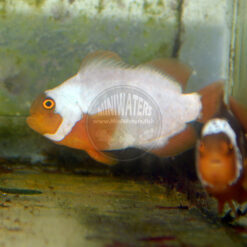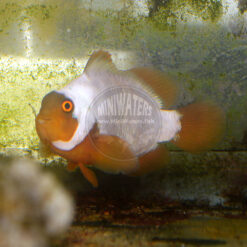Amphiprion ocellaris “Fancy White Smudgy” Clownfish, WYSIWYG 1-31-2016 B
$109.00
What we have here is a WYSIWYG offering – this is the exact fish being offered for sale! It is approximately 1.25″ in size.
SMUDGY Ocellaris Clownfish. Definitely something you’re not going to see just anywhere.
No one really knows what it is, but these days we all know what it looks like. Cloudy, hazy patches of bar coloration over the flanks, generally areas that have lost the normal “black” margin and crisp border demarcation see in the bars of clownfish. Sustainable Aquatics is one of the only places where I’ve seen the occasional “smudgy” Ocellaris clownfish produced and made available. Their Smudgy or Smudge Clownfish appear in Fancy White breeding; whether all of these fish carry the “DaVinci” gene responsible for the look of a typical Fancy White is unclear. Interestingly, we do not see “Smudgy” variants showing up in our own local Fancy White breeding; this is truly something rare and unusual.
What the “Smudgy” genetic is, is also unclear. Single gene? Multi-gene? Can it be reproduced?
All the Smudgy I will offer at this time are sold to me as “Fancy White Smudgy”, so that is how I will retail them. It is likely that the individual genetics of a Smudgy Ocellaris will only be proven once it is bred; if no Davinci-type offspring show up, then the fish doesn’t carry the gene.
Regardless of the DaVinci gene content, any fish sold as Smudgy will obviously show this cloudy, hazy barring pattern. Smudgy potentially represents something new genetically in clownfish (we see similar markings in some Picasso Percula and of course, the Nebula which is at least in part defined by the presence of smudgy markings). Working with Smudgy Ocellaris will be an exiting and interesting challenge for the breeders to undertake. Who will crack the code? What new multi-gene combinations could be created? It’s impossible to say at this time.
I’ve included more information on the Fancy White background, that may or may not be present in this fish, below.


